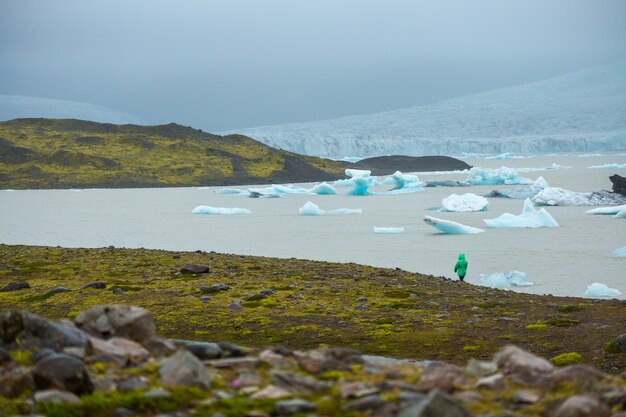Exploring Greenland – Facts Worth Knowing

Greenland is the world’s largest island.
Greenland is located in the Arctic region, northeast of Canada.
Greenland has a population of around 56,000 people.
It is an autonomous territory within the Kingdom of Denmark.
The official language of Greenland is Greenlandic, but Danish is also widely spoken.
Despite its name, Greenland is mainly covered in ice and snow, not green vegetation.
The Greenland ice sheet covers about 80% of the island’s surface.
Greenland is home to some of the largest glaciers in the world.
The ice sheet in Greenland is up to 3 kilometers thick in some areas.
Greenland’s capital and largest city is Nuuk.
Nuuk is the northernmost capital city in the world.
Greenland is known for its breathtaking fjords and stunning landscapes.
It is a popular destination for adventure tourism, especially glacier hiking and ice climbing.
Greenland has a unique and rich cultural heritage, influenced by Norse and Inuit traditions.
Traditional Inuit hunting and fishing are still important parts of Greenlandic culture.
Greenland is a prime location for observing the Northern Lights.
The midnight sun is also visible in Greenland during the summer months.
Greenland has a significant population of polar bears.
It is also a habitat for walruses, Arctic foxes, and various species of whales.
Greenland is home to numerous bird species, including puffins and the national bird, the Greenlandic Gyrfalcon.
Exploring Greenland – Facts Worth Knowing part 2
The fishing industry is one of the main sectors of Greenland’s economy.
Greenlandic cuisine often includes traditional dishes like seal, whale, and muskox meat.
Dog sledding is a popular mode of transportation in rural areas of Greenland.
The Greenlandic language has its own unique alphabet.
Greenland experienced a boom in tourism after the release of the movie The Secret Life of Walter Mitty, in which Greenland and its landscapes were featured prominently.
In 2019, Greenland made headlines when the U.S. President expressed interest in purchasing the island.
Greenland’s flag features a white circle symbolizing the sun, against a red background representing the island.
The traditional clothing of Greenlandic women, called the kalaallisuutoq, is known for its elaborately embroidered designs.
Greenland’s education system is bilingual, with both Greenlandic and Danish taught in schools.
The Danish krone is the official currency of Greenland.
Greenland has a small but growing film industry, with local filmmakers gaining international recognition.
Tourism in Greenland is often focused on promoting responsible and sustainable practices.
The Greenlandic language has multiple dialects, varying between regions.
Greenland has a relatively short summer season, with temperatures rarely exceeding 10°C (50°F).
Winter in Greenland can be extremely cold, with temperatures dropping well below freezing.
The Ilulissat Icefjord in Greenland is a UNESCO World Heritage site.
Greenland’s economy also relies on mining for resources such as zinc, gold, and rare earth minerals.
The Greenlandic people have a strong sense of community and rely on cooperation for survival in the harsh Arctic environment.
Greenlandic folklore often includes stories of mythical creatures like sea spirits and trolls.
Greenland has a small but active music scene, with genres ranging from traditional Inuit throat singing to modern rock and pop.
The Qaqortoq Sculpture Park in Greenland exhibits unique sculptures made of local granite.
Greenland has its own postal service, issuing stamps featuring local wildlife and cultural themes.
The Greenlandic Parliament, known as the Inatsisartut, plays a crucial role in governing the island.
The traditional Inuit kayak, called the qajaq, is a symbol of Greenlandic craftsmanship and heritage.
Despite the challenges posed by climate change, Greenland remains a resilient and captivating destination for explorers and nature enthusiasts.

